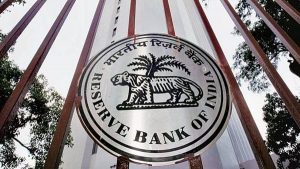Guidelines On State Guarantees On Borrowings : RBI

A Working Group constituted by the Reserve Bank of India (RBI) has made certain recommendations to address issues relating to Guarantees extended by State governments.
- The Working Group constituted during the 32nd Conference of the State Finance Secretaries held in July 2022.
- The term Guarantee should be used in a broader sense and include all instruments if they create an obligation on the guarantor (State) to make a payment on behalf of the borrower at a future date.
- Further, it must make any distinction between conditional or unconditional, or financial or performance guarantees in order to assess the fiscal risk.
- These are conditional liabilities that may present a potential risk in the future.
- The government guarantees should not be used to obtain finance through State-owned entities, which substitute budgetary resources of the State Government.
- Additionally, they should not be allowed to create direct liability/de-facto liability on the State.
- There should be adherence to Government of India guidelines that stipulate that guarantees be given only for the principal amount and normal interest component of the underlying loan.
- Guarantees must not be extended for External Commercial Borrowings, must not be extended for more than 80% of the project loan (depending on the conditions imposed by the lender) and must not be provided to private sector companies and institutions.
- Appropriate preconditions such as the period of guarantee, levy of (guarantee) fee to cover risk, government representation on the management board of the borrowing entity, and right to audit, etc, must be specified.
- The Group recommends that States assess the risk associated with guarantees by categorising them as high, medium, or low risk, taking into account the entity’s past default history.
- The methodology used for assigning these risk weights should be transparent and disclosed.
- Based on the risk assessment minimum guarantee fee must be set at a minimum of 2.5% per annum.
- The report emphasises that invoking a guarantee could impose considerable fiscal strain on the state government.
- To mitigate potential stress, the Group proposes imposing a ceiling on guarantees, limiting them to 5% of Revenue Receipts or 0.5% of Gross State Domestic Product (GSDP), whichever is lower.
- The Group recommends that the RBI should suggest banks/NBFCs to disclose the credit given to State-owned entities with State-government guarantees.
- The report emphasises the need for a comprehensive database to track extended guarantees, proposing the creation of a unit at the State level for this purpose.
- The report highlights that delays in honoring guarantees could harm the State government’s reputation and pose legal risks.
- It advises States to be cautious when providing finance to entities with a history of not meeting commitments.
- The report emphasizes the importance of promptly honoring guarantees to maintain credibility with lenders and investors




